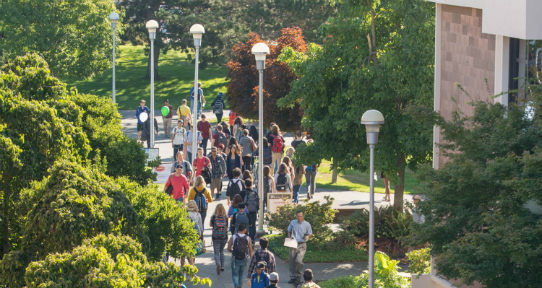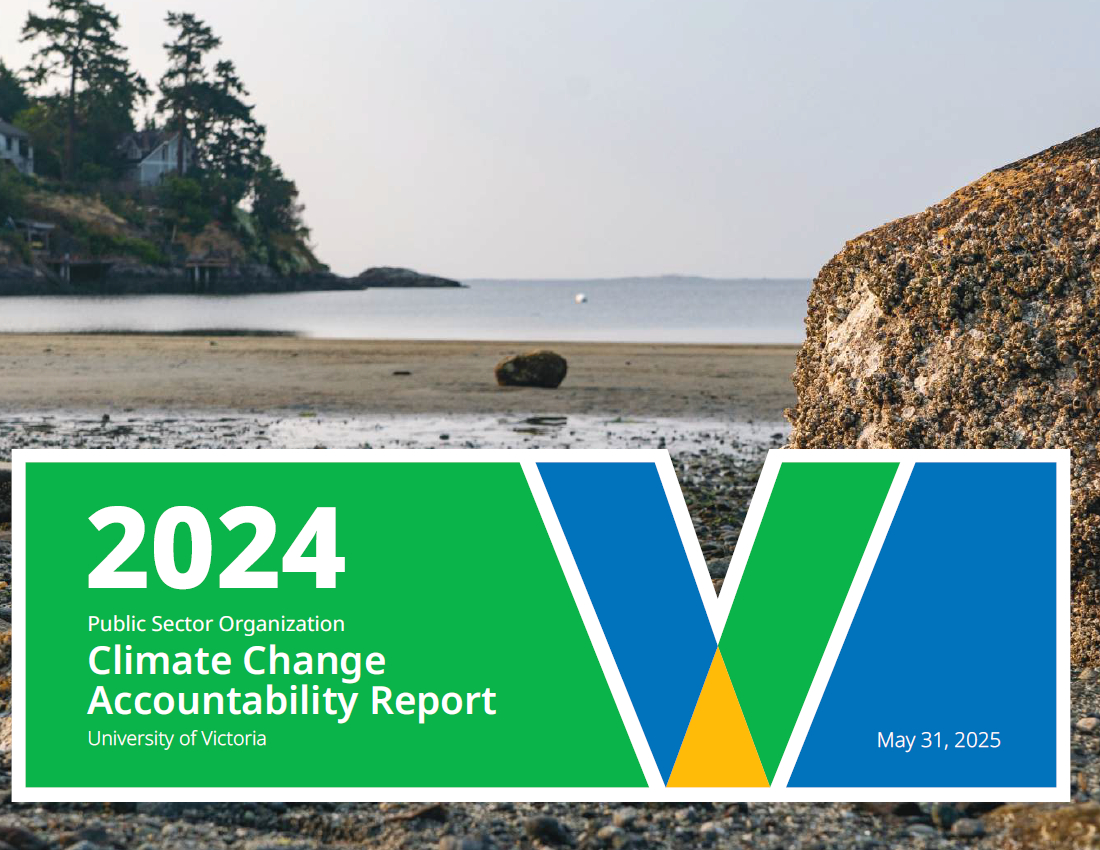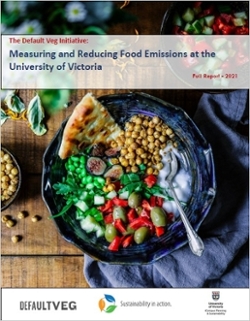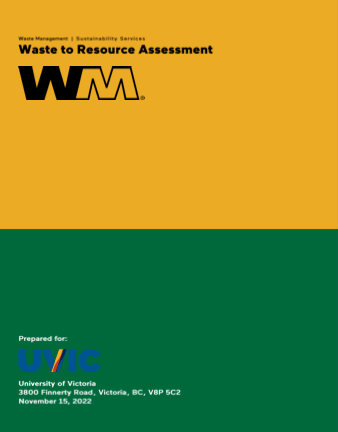Sustainability reports

Climate and Sustainability Action Plan 2030

The University of Victoria is committed to global leadership in environmental, social and institutional sustainability. We meet this challenge through our Strategic Framework, research, academic programs, campus operations, and the impact and influence of our students, faculty, staff and alumni.
The Climate and Sustainability Action Plan 2030 (CSAP) is a new and unique approach to sustainability and climate action at UVic. This Strategy brings all campus portfolios, academics and curriculum, research and innovation, external, Indigenous, international relations, community and government relations, communications, finance and operations together, to guide UVic as we address and adapt to global challenges faced by all universities. You can read both CSAP Actions and CSAP Strategies, as together they make up the plan.
STARS

The Sustainability Tracking, Assessment and Rating System (STARS) is a voluntary framework used by colleges and universities to measure, report, and strengthen their contributions to global sustainability. UVic has received fourSTARS scores to date. Each score has improved with every submission, with the most recent submission earning UVic the highest raiting: Platinum.
You can read more about UVic's latest score in the 2023 STARS Submission.
Sustainability Action Plan Progress Reports
The following reports highlight the progress in achieving the goals outlined in the Sustainability Action Plans. You can read UVic's final report as it relates to the Sustainability Action Plan: Campus Operations 2020-2021.
The Sustainability Action Plans are UVic's multi-year frameworks used to address environmental, social, and institutional sustainability on campus and within the UVic community. Each plan defines goals, strategies and actions for different areas of sustainability. You can find previous versions on the Sustainability Policy page.
View previous Progress Reports for Sustainability Action Plans
- 2021 Sustainability Action Plan: Final Report
- 2019 Sustainability Action Plan: Final Report
- 2016 Sustainability Action Plan: Campus Operations Progress Report Highlights
- 2016 Sustainability Action Plan: Campus Operations Progress Full Report
- 2014 Final Report Sustainability Action Plan: Campus Operations 2009-2014
- 2012 Sustainability Action Plan: Campus Operations Progress Report
- 2006 Sustainability Report
Climate Change Accountability Report

The Climate Change Accountability Report (previously known as the Carbon Neutral Action Report) summarizes UVic's greenhouse gas (GHG) emissions, the amount of offsets purchased to reach net zero emissions, the actions undertaken to reduce our greenhouse gas emissions and the university’s plans to continue reducing emissions in 2025 and beyond.
You can read more in the 2024 report.
View previous Greenhouse Gas Reports
- 2023 Climate Change Accountability Report
- 2022 Climate Change Accountability Report
- 2021 Climate Change Accountability Report
- 2020 Climate Change Accountability Report
- 2019 Carbon Neutral Action Report
- 2018 Carbon Neutral Action Report
- 2017 Carbon Neutral Action Report
- 2016 Carbon Neutral Action Report
- 2015 Carbon Neutral Action Report
- 2014 Carbon Neutral Action Report
- 2013 Carbon Neutral Action Report
- 2012 Carbon Neutral Action Report
- 2011 Carbon Neutral Action Report
- 2010 Carbon Neutral Action Report
- 2009 Carbon Neutral Action Report
- 2008 Carbon Neutral Action Report
- 2006 Greenhouse Gas Inventory
Traffic Survey
The Traffic Survey is conducted every two years and outlines the percentage of automobile drivers, transit passengers, cyclists, and pedestrians to and from the University for a typical weekday. This aligns with one of the university's main transportation goals to increase the use of transit, cycling, walking and carpooling to 70% of the transportation modal split.
Read more in the 2023 traffic survey report.
View previous Campus Traffic Surveys
- 2021 Campus Traffic Survey
- 2018 Campus Traffic Survey
- 2016 Campus Traffic Survey
- 2014 Campus Traffic Survey
- 2012 Campus Traffic Survey
- 2010 Campus Traffic Survey
- 2008 Campus Traffic Survey
- 2006 Campus Traffic Survey
- 2004 Campus Traffic Survey
- 2000 Campus Traffic Survey
- 1996 Campus Traffic Survey
- 2008 Traffic and Parking Management Study
Measuring and reducing food emissions

The Default Veg initiative set out to identify the need to calculate the greenhouse gas emissions related to food at the university with support from the University of Victoria’s Campus Sustainability Fund and recognition by the Climate Solutions Challenge in 2021. In their report, DefaultVeg outlines the total food emissions on campus, identifies food emissions reduction strategies and health co-benefits of plant-based diets, summarizes campus engagament events, and makes recommendations to reduce food related emissions.
You can find more information in the 2021 report.
Times Higher Education Impact Rankings
The Times Higher Education (THE) Impact rankings assess universities against the United Nations’ Sustainable Development Goals (SDGs) to provide comprehensive comparisons across three broad areas: research, outreach, and stewardship. The Impact Rankings are the first global attempt to measure university progress specifically around the SDGs. Universities receive a score and a rank for their activities in each of the individual SDGs for which they submit data.
Learn more about Sustainable Development Goals at UVic.
Waste Audit
The waste audit outlines the findings of Waste to Resource assessments conducted at UVic. During this assessment, landfill samples are collected, sorted, and recorded to reduce waste, identify diversion opportunities, and increase awareness among the campus community.
You can read the latest findings in the 2022 report.
Invasive Species Management Strategy
The Campus Invasive Species Management Plan (ISMS) was developed with support from the University of Victoria’s Campus Sustainability Fund. The ISMS provides an organizational structure and identifies resources to enable Facilities Management, faculty, students and community members to work together in controlling invasive species on campus.
You can find more information in the 2016 report.
Water Audit
In 2012, UVIC engaged the Capital Regional District (CRD) to complete a water use audit in each of the buildings on campus. The purpose of the water audit was to determine water use efficiency within each building and the surrounding grounds to provide recommendations to improve UVic's water use efficiency.
You can find more information in the 2012 Water Audit.

